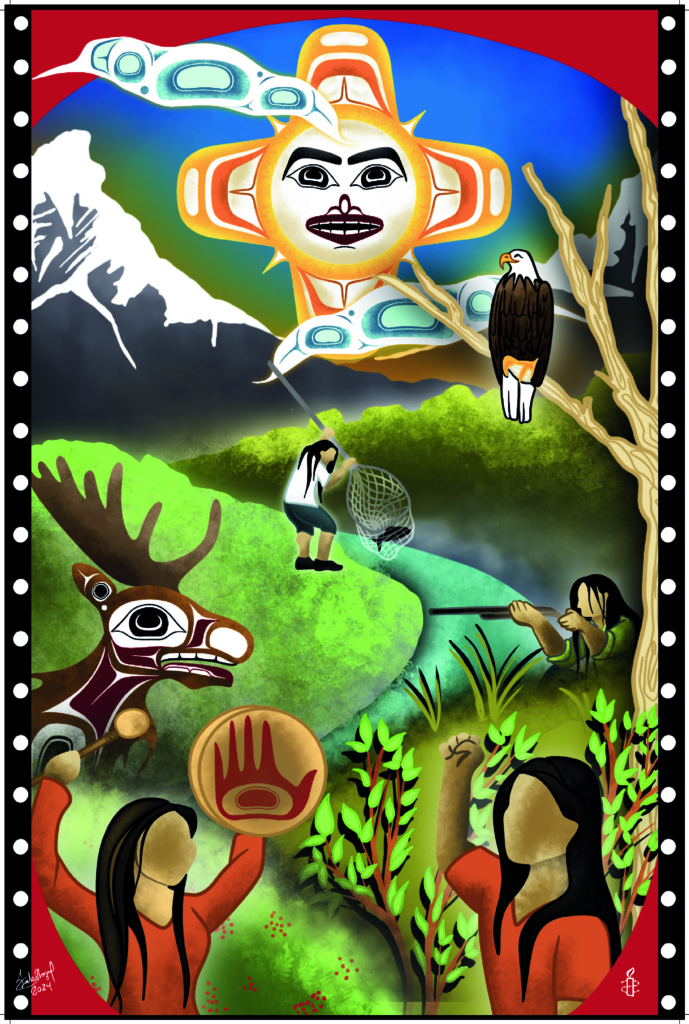Amnesty International Canada’s Write for Rights campaign is proud to feature Yinka Dini, a powerful piece by Satsi Naziel, an artist from the Wet’suwet’en Nation. Translating to “People of this Land,” their artwork vividly captures the Wet’suwet’en connection to their ancestral territories and their commitment to protecting their Yintah (land) for future generations.
Yinka Dini by Wet’suwet’en artist Satsi Naziel

“Traditionally the Wet’suwet’en would introduce themselves as Yinka Dini, and it was only other nations that would refer to us a Wet’suwet’en (people of the lower drainage).
In this piece, I have drawn just that: our people living as people of this Land. Fishing by the river canyon, hunting, drumming, and protecting what we have been protecting for thousands of years.
This image shows mountains, rivers, eagles, and wild animals such as moose. Plant life, such as willow and soap berries, are also represented.
The button blanket is represented as a decorative border around the image, representing this way of life as the way our ancestors practiced together, shaping our traditional governance system.
The decision to protect our Yintah (land) from destructive industries is the way of the land and our ancestral wisdom, which tells us to only take what we need.
That being said, Coastal GasLink Pipeline LTD is taking from the land things we do not need when green energy is available as an alternate energy source. Our sacred pathways, such as the Kweese War trail have been destroyed, and archeological rich sites gone with it.
The decision to protect the Yintah and stop Coastal GasLink is necessary if we want to continue living this way of life as Yinka Dini.”
– Wet’suwet’en artist Satsi Naizel
Take Action
- Inspired by this artwork? Download Yinka Dini and save it as your wallpaper to show your solidarity.
- Sign our petition today to protect Wet’suwet’en land defenders
- Register for Write for Rights and show your support for the Wet’suwet’en Nation and eight other remarkable people from around the world, united by the fact that their human rights have been violated






















